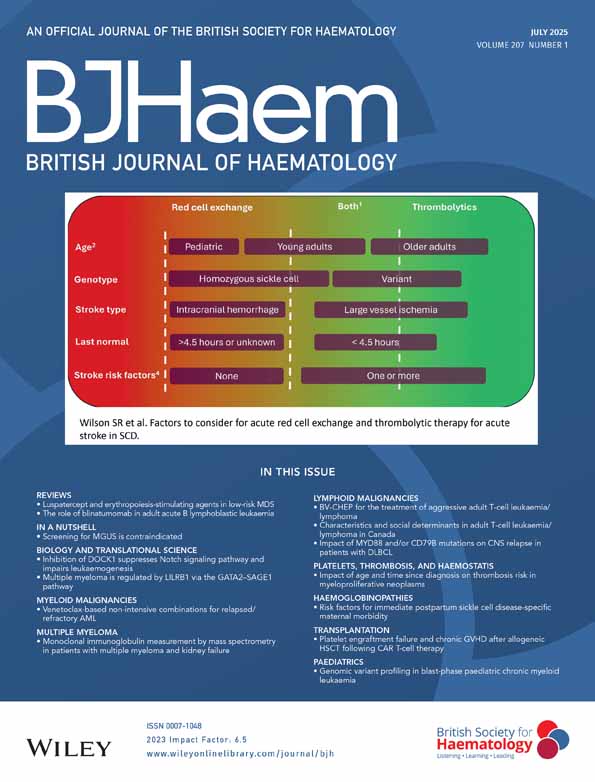Syngeneic stem cell transplantation for HIV-related lymphoma
Abstract
The treatment of human immunodeficiency virus (HIV)-related lymphoma is beset by a number of therapeutic limitations. High-dose chemotherapy followed by peripheral blood stem cell transplantation (PBSCT) for relapsed disease is one option, but may be compromised by unacceptable treatment-related morbidity and mortality. We describe an HIV-positive male with relapsed immunoblastic non-Hodgkin's lymphoma (NHL) who successfully received salvage chemotherapy followed by a syngeneic PBSCT from his HIV-negative (hepatitis C positive) brother. At 15 months post-transplant he remains in complete remission with low-level HIV viral load, an improved CD4 lymphocyte count and absent anti-hepatitis C antibodies. We believe selected patients with relapsed HIV-related NHL should be considered for high-dose therapy.




